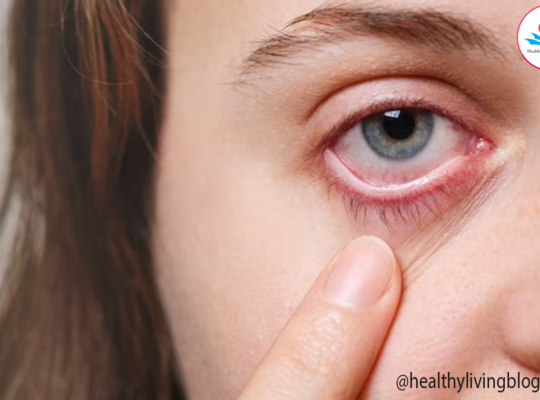What is a sore throat?
A sore throat is an uncomfortable sensation characterized by a scratchy and painful feeling in the back of your throat. It can make swallowing and talking painful. There are various causes for a sore throat, including bacterial and viral infections, allergies, and even the habit of sleeping with your mouth open.
Fortunately, most sore throat symptoms tend to alleviate within a few days. However, it is important to seek guidance from a healthcare provider if your sore throat persists for more than a week, worsens over time, or if you develop additional symptoms such as fever or swollen lymph nodes. Remember, taking care of your throat health is crucial for overall well-being. Stay hydrated, consider using throat lozenges or gargling warm saltwater, and remember that rest is often essential for a speedy recovery.

Symptoms of Sore throat
When you have a sore throat, you may experience various symptoms including:
- Throat Pain: You might feel a painful or scratchy sensation in your throat.
- Difficulty Swallowing: Swallowing food or liquids could become hard or painful.
- Painful Talking: Speaking or talking may worsen the pain in your throat.
- Swollen Glands: The glands in your neck or jaw may become swollen and tender.
- Red and Swollen Tonsils: Your tonsils can appear red, swollen, and larger than usual.
- White Patches or Pus: White patches or pus may be visible on your tonsils, indicating an infection.
- Hoarse or Muffled Voice: Your voice might sound hoarse or muffled.
Causes of Sore Throats
Sore throats are commonly caused by viral infections such as the common cold or flu. However, there are other conditions and factors that can contribute to a sore throat:
- Bacterial Infections: Strep throat and bacterial sinus infections are examples of bacterial infections that may result in a sore throat.
- Allergies: Allergic reactions to pollen, dust mites, pets, or mold can lead to a dry and scratchy throat. This is often accompanied by postnasal drip, where mucus from the nose drips down the back of the throat, causing irritation and discomfort.
- Tonsillitis: Tonsillitis occurs when the tonsils, which are the two small lumps of soft tissue at the back of the throat, become infected and inflamed. It can be caused by both bacteria and viruses.
- Acid Reflux: Gastroesophageal reflux disease (GERD) can cause a burning sensation and pain in the throat. This occurs when stomach acid flows back into the esophagus, the tube that carries food from the throat to the stomach.
- Overuse or Irritants: Yelling, screaming, consuming spicy foods, smoking, or drinking very hot liquids can strain the throat and result in soreness.
- Mouth Breathing: Breathing through the mouth instead of the nose while sleeping can cause a sore throat.
 | It’s important to note that a medical professional should be consulted for an accurate diagnosis and appropriate treatment for a sore throat. |
Here are some tips to help soothe a sore throat:
- Stay hydrated: Drink plenty of fluids, such as water, warm tea with honey, or warm soup, to keep your throat moist.
- Gargle with warm saltwater: Mix half a teaspoon of salt in a glass of warm water and gargle with it several times a day. This can help reduce swelling and relieve discomfort.
- Use throat lozenges or sprays: Sucking on throat lozenges or using throat sprays can temporarily numb the pain and provide relief.
- Try honey and lemon: Mix a tablespoon of honey and the juice of half a lemon in a cup of warm water. Sip on this soothing mixture to help ease your sore throat.
- Use a humidifier: Adding moisture to the air with a humidifier can help soothe a dry and irritated throat.
- Avoid irritants: Stay away from smoke, allergens, and other airborne irritants that can further irritate your throat.
- Rest your voice: Avoid excessive talking, yelling, or singing to give your throat time to heal.
To prevent developing a sore throat, try following these tips:
- Practice good hygiene:
- Wash your hands regularly, especially before meals and after being in public places. This can help reduce your risk of coming into contact with viruses and bacteria that cause a sore throat.
- Avoid close contact with people who have a sore throat or other respiratory infections.
- Stay hydrated:
- Drink plenty of fluids throughout the day to keep your throat moist and prevent dryness.
- Maintain a healthy lifestyle:
- Have a balanced diet that includes fruits, vegetables, and whole grains, as they provide essential nutrients to boost your immune system.
- Avoid irritants:
- Try to limit exposure to irritants such as tobacco smoke, pollutants, and strong chemicals, as these can irritate the throat and make it more susceptible to infection.
- Keep your throat lubricated:
- Consider using throat lozenges or gargling with warm saltwater to soothe your throat.
- Stay away from allergens:
- If you have allergies, take steps to avoid triggers that can cause a sore throat.
- Practice stress management:
- High stress levels can weaken your immune system, making you more prone to infections. Engage in relaxation techniques such as meditation, deep breathing exercises, or yoga to reduce stress.
 | Remember, if you experience frequent or severe sore throats, it’s always advisable to consult with a healthcare professional for proper evaluation and treatment. |







